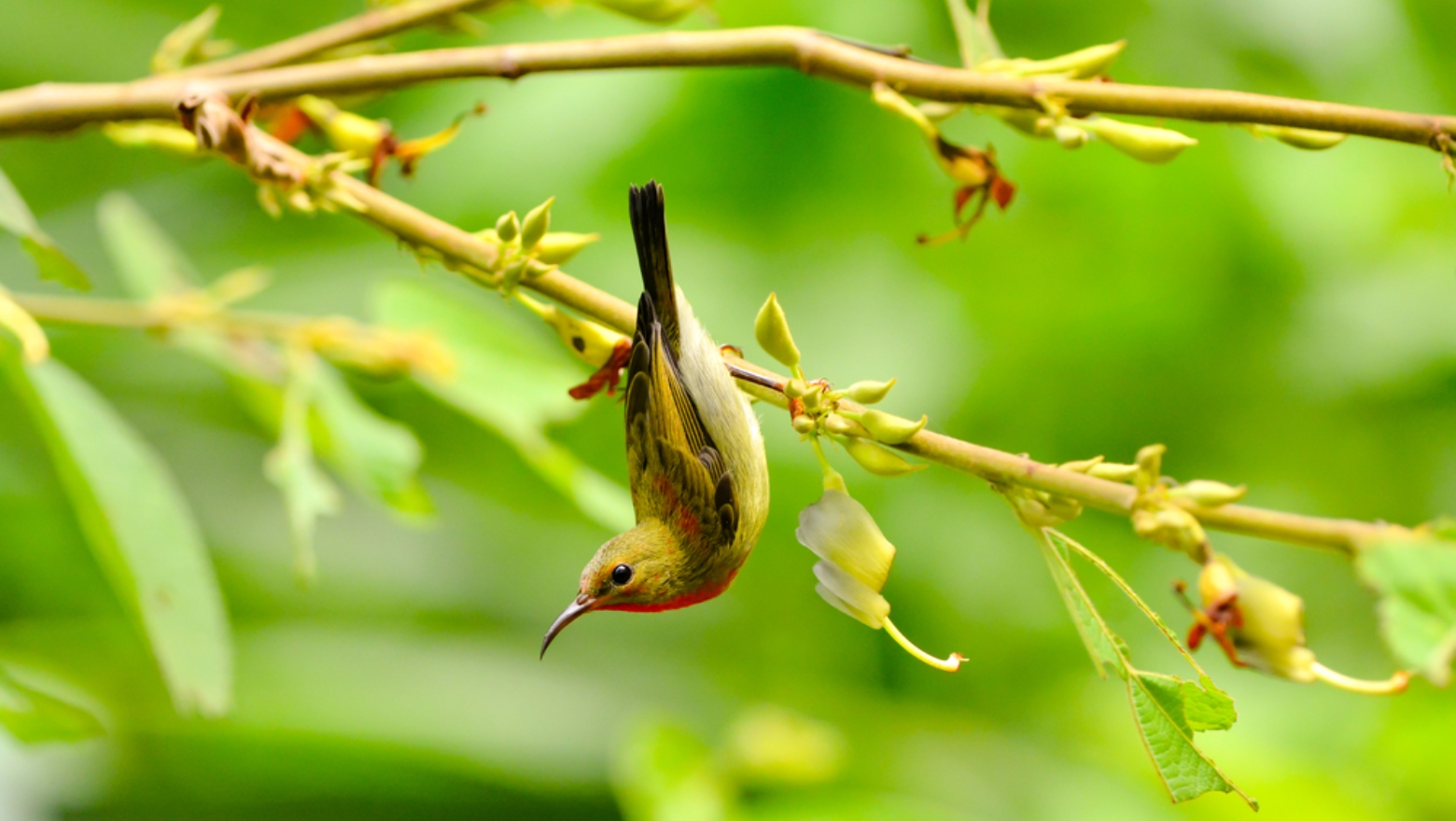The nicotine and anabasine found in the nectar of the flowers of tree tobacco (Nicotiana glauca) has a bitter taste that repels grazing animals. However, the sunbirds that pollinate the tree tobacco’s yellow flowers never fail to return for more nectar despite its harsh taste.
Researchers from Oranim Campus of the University of Haifa have revealed through chemical analysis that nicotine and anabasine contain a special ingredient that causes the sunbirds to forget their bitterness.
“These materials interfere with the bird’s learning process, apparently through memory loss,” said Prof. Shai Markman, a behavioral and chemical ecologist in the university’s department of biology and the environment.
For the study, Markman’s lab prepared artificial tree tobacco flowers, filling some of them with sugar water and the rest with plain water. The ones with sugar water were painted a different shade of yellow.
They waited for the sunbirds to learn which flowers would reward them with sugar water. When the birds reached 80 percent accuracy, the researchers fed them sugar water with a mixture of anabasine and nicotine. After an hour, they returned the sunbirds to the artificial flowers, now all filled with plain water.
Their assumption was that the birds would sample more flowers painted the rewarding color until they learn that the situation had changed. Instead, the sunbirds approached the flowers colored with the non-rewarding hue more frequently. Clearly, something had impaired their learning patterns.
The researchers theorize that although consumption of low concentrations of nicotine for short periods of time is known to help focus attention and improve learning, the addition of anabasine decreases learning ability.
This effect takes about half an hour, yet due to their innate curiosity — and the fact that some tree tobacco flowers are less bitter than others — sunbirds continue sampling the flowers during those 30 minutes, Markman explained.
What’s the takeaway lesson? “Apart from the limited analogy with the impact of smoking and nicotine consumption in humans, this research may also have implications for future studies of crops in which the nectar of the plants’ flowers contain secondary substances which may affect the performance of pollination by pollinators, and thereby affect crop yields,” he said.













